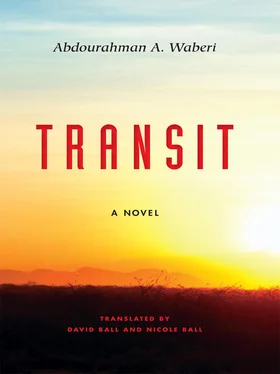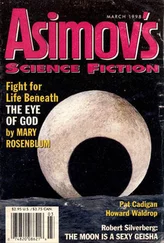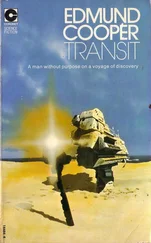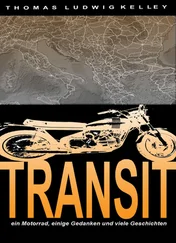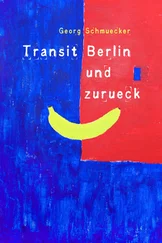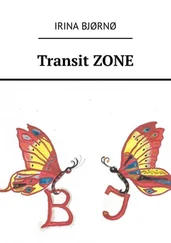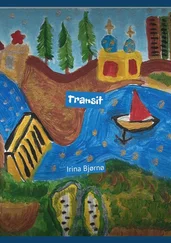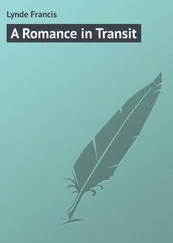They seemed lost; so was I but a lot less than they were. They looked gentle, sweet, harmless. So did I, they said, afterwards. I knew nothing about them, about their country, their language, their culture. I had just turned twenty; I was just coming out of the awkward teens. Life was ahead of me; it was possible to change it, as we kept saying at the time, a time that seems today almost as remote as geological eras. And with one snap of the fingers, everything picked up speed; everything became clear. It's not the word “passion” that came to mind when I started to be around them a bit — of course not. It was the word “puzzlement” at first. They were always in groups, as if they were on duty together. They did everything together, in packs almost, like the ants in the documentaries they show on French TV late into the night. This compact conglomerate was very strange to me at the beginning. Then I got used to their gregarious ways, their nomadic flesh that would start moving only as a group, with their worries locked inside themselves more often than not. They'd laugh and joke in rhythm; they're sure good at that, bigger jokers you won't find. I was friendly with all of them, laughing with one, laughing with all. Since no one could muster enough courage to pick me up, it took a long time before I could be all alone with your father, discover pleasure with him — the kind you call carnal — and before we could thrill together. He seemed unhappy to leave his gang just to spend an afternoon at the movies with me, but proud as a peacock as I was, I would never allow myself to rein him in. So he would make a date with me and then cancel at the last minute, saying he had forgotten his Interafrican soccer game. It was trendy at the time to form teams by countries and fight on the soccer field. A lot better than the meetings of cabinet ministers in the OAU, 1as the jolly Dieudonné, the fast center forward from Togo, would say jokingly. Dieudonné Gnammanckou, what kind of a name is that, a guy from Morocco would grumble — always the same guy, the one with a chip on his shoulder, but he could run faster than Jesse Owens and he was generous with his passes on the field. My God, your father made me watch so many of those damn games! Him and me, we could talk and understand each other in a split second, a split word, a split smile. Making love with him was easy as having a glass of water. And believe me, my foggy Brittany hadn't prepared me for that. With him, I was always stewing in cayenne pepper. When I think about it now I tell myself I was being buoyed up in an ocean of tales without beginning or end. I know what I mean. If going so far away, into such a far-off elsewhere, didn't bother me, it's because nostalgia and its double, melancholia, are quite foreign to my nature.
Of Brittany, I miss nothing. Not the sugared crepes or the crepes flambé in chouchen cider, nor the liquid skies and the rain-wind of Mont-Saint-Michel, nor the vacations at Saint-Pierre-de-Quiberon (they were from the land on my father's side, from the sea on my mother's, and that's why schooners, longshoremen and their strikes, deep-sea fishing, foggy docks, caravels, puffins, pelicans, chebecs and clippers, trawlers, seaweed and seafarers, frigates, the navy, overcast skies, the Azorean anticyclone, the waters of the Gulf of Gascony, Ouessant, and Roscoff, Aix and Oleron, the beaches of Finistère and even far-off Cape Horn were all part of family conversation), the noisy folklore in Lorient or Morlaix in the summertime, with its sprightly carousels of boozers and bagpipe blowers. I have no need for memory, that cumbersome totem. No Proustian remembrance of things lost for me, no madeleines, no little patch of yellow wall. And I might as well tell you right now: Celtic music really gets on my nerves. I can't retrieve that memory unless I'm under hypnosis. It's epidermal, it's contagious, that's all. End of story.
Sometime before her tragic death, she confided to me that when she was a teenager, her nose was a little too hooked. One of those little defects nature bestows on you for life. As you might guess, that made her self-conscious, and her family never failed to remind her of it. They had decided that she should have her nose fixed. She was shaking with fear, fear of dying, fear of not waking up, fear of sinking into the arms of her anesthesiologist for good. Her legs, soft as cotton, couldn't carry her any longer. An appointment had been scheduled shortly before summer. The date was nearing. They kept coddling her, reassuring her as best they could. But her fear only intensified. And yet, a miracle happened. It came from the clinic of Doctor Lucien Roussel, the most famous plastic surgeon in Brittany. He's the one who put an end to that panic fear. Three days before she was due for surgery, he committed suicide.
In the history books, articles, and newspaper clippings Maman used for her research, bringing them back from the National Archives of Overseas Territories in Aix-en-Provence, you find numerous terms and insulting denominations, the wild theories of anthropologists or preposterous tribologists that should be stowed away deep inside the warehouse where historical anathemas are stored and forgotten. Not to mention, Papa would say, that school of tropical geography that never got out of the claws of the colonial lobby. They're a real pain in the neck (let me tell you, I'd just as soon get smacked in the kisser by a shepherd's stick, Maman would say if she heard me talk like a little professor) with their poor little men oppressed by their climate, their volatile acacias married to the desert winds, technically deprived, threatened by pandemics, bedimmed by sleeping sickness, reduced to living naked, and overwhelmed by a soaring birthrate. They keep talking about those minds filled with wonder and innocence, fed by the milk of France, their savior and benefactor. In the editorials of the time, we were always subjected to the risks of mutilating choices: convert or exploit them, educate or emasculate them, develop or crush them. “Exterminate all the brutes!” vociferated Conrad's counterpart, someone who knew how to speak the language of truth. As a young thirty-two-year-old sailor, he had commanded a steamer that went up the Congo River in 1890. Heart of Darkness is simply the fictitious version of his logbook, and Kurtz is only applying the techniques then in use to exploit gold, ivory, and wood on the property of good old king Leopold of Belgium.
I have ungrudgingly revealed to you my intuitions and the kind of books I read. It's up to you to finish the job, if you feel like it. I'll even help with the bibliography if need be. And if I were you, I wouldn't stop here.
Maman's eyes are blue, Papa's are black, mine are brown. Maman, she's grace itself and Papa — forget it! My eyes? Brown, and light, she often adds. Moumina (Memona, that's how my funny half-Breton mom pronounces it), the girl who works for us, has gray eyes like a cat, which has oblong pupils, as you well know. She also has two high round breasts, what am I saying, she has two ogival arches thrusting upwards into the sky, an aquiline nose close to my heart, and two long thighs the color of honey. Ah! There she goes, she's starting to size me up with her sexy look; it's because she has readjusted her lips to put her smile back on, a necessary prop in a seducer's paradise. Moumina has for me the face of all the feminine rotundities to grind or knead. Moumina is the human clay on which I dream of planting my particle of life. She's the one who feeds me in the kitchen whenever I feel like eating something. I don't want Maman to know this right away. We feast on the leftovers. Anyway, Moumina's the boss in the kitchen. Let me tell you, I much prefer it this way. Telling you she knows how to be in charge isn't giving away a secret: Moumina grew up in the orphanage managed by the former president's wife. He loved to care for a plentiful, distant brood. Since they were childless, the presidential couple was bled white by their close family, a demanding and expensive one. What more gratifying, then, than a tribe of orphans humming their gratitude, laurel palms in hand, eloquence on their lips, ready to cheer them enthusiastically every single weekend.
Читать дальше
